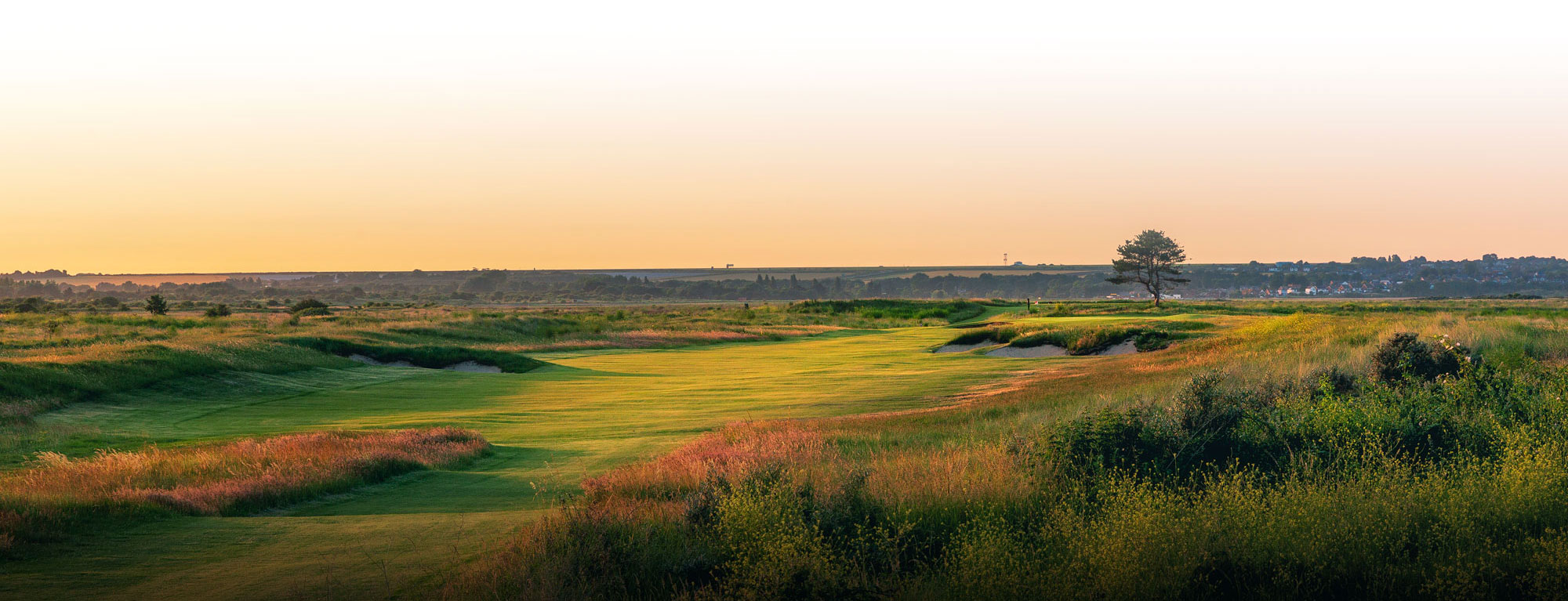Heritage Origins
At the beginning of the last century, Sir Harry Mallaby – Deeley, founder and first President of Prince’s Mitcham and a regular golfing visitor to East Kent, decided to establish a new Links at Sandwich that would, in particular, welcome lady, junior and family golfers.
With his Cambridge University friend Percy Montagu Lucas he put up most of the capital for the enterprise, the land being donated by the Earl of Guilford. Charles Hutchings, the 1902 Amateur Champion, was engaged as architect and he and Percy laid out the course in 1904. It was completed late in 1906, P M Lucas became the club’s first Secretary and A.J. Balfour (Prime minister 1902-05) drove the first ball as Club Captain in the Founder’s Vase in the following June. The new course was the first designed to counter the new Haskell ball and at just under 7000 yards was enthusiastically received by the golfing fraternity. Just five years later it hosted the 1912 English Ladies Open, won by Miss M Gardner.
The finest links course
Henry Cotton
1914 saw the foreshore and links become a coastal defence and training area with barbed wire entanglements and anti-aircraft batteries. P M Lucas kept the greens cut throughout the war and the billeting of members of the Argyll and Sutherland Highlanders in the clubhouse no doubt contributed to sympathetic treatment of the course. It was they who gave Percy’s son his nickname of “Laddie”.
The course was quickly restored and hosted the 1922 Ladies Open, won by Joyce Wethered. The club thrived during the 30’s and 40’s. It was a regular venue for the Parliamentary Golf Society and Inter Varsity golf matches, with Henry Longhurst making his first appearance for the Cambridge side in 1928. The Prince of Wales became Club President in 1930, and two years later the club staged the Open Championship, Prince’s hosting of the Championship was rated a great success, but before it could stage the event again, the country was once more at war.
The links and club premises were soon requisitioned by the military, this time as a battle training ground and the course was all but obliterated. Its use for target practice was likened by Lord Brabazon to “throwing darts at a Rembrandt”. The Royal Marines considered retaining the course as a permanent rifle range but it was finally derequisitioned in 1949 and Australian property developer Sir Aynsley Bridgland came to the rescue.
In 1950 Sir Guy Campbell and John Morrison were engaged to redesign and restore the course. Despite the wartime damage it was found possible to incorporate 17 of the original greens into a new layout of 27 holes plus two practice holes. The “Shore”, “Dunes” and “Himalayas” courses, each starting and finishing beside the clubhouse have held competitions and Championships, through several combinations of course.
Britain’s finest course
Gene Sarazen
The 1954 Dunlop Masters, won by Bobby Locke, was the first major event to be staged over the new layout whose modern redesign eliminated any blind tee or approach shots. Through the 50’s, 60’s and 70’s leading Amateur and Professional Championships were held at Prince’s including the Curtis Cup, British Ladies Open and the PGA Championship, with Peter Alliss claiming two tournament victories.
